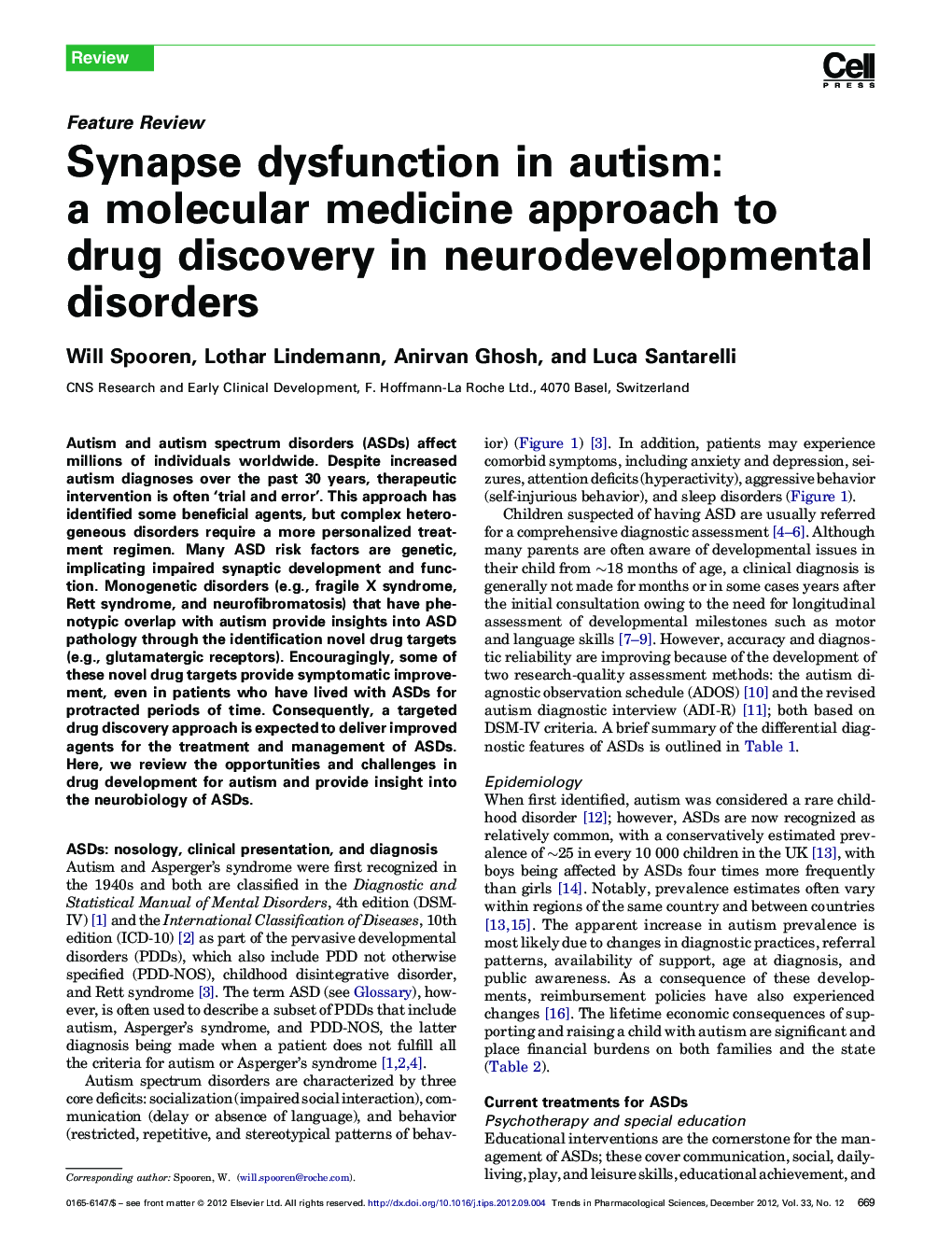| Article ID | Journal | Published Year | Pages | File Type |
|---|---|---|---|---|
| 2572872 | Trends in Pharmacological Sciences | 2012 | 16 Pages |
Autism and autism spectrum disorders (ASDs) affect millions of individuals worldwide. Despite increased autism diagnoses over the past 30 years, therapeutic intervention is often ‘trial and error’. This approach has identified some beneficial agents, but complex heterogeneous disorders require a more personalized treatment regimen. Many ASD risk factors are genetic, implicating impaired synaptic development and function. Monogenetic disorders (e.g., fragile X syndrome, Rett syndrome, and neurofibromatosis) that have phenotypic overlap with autism provide insights into ASD pathology through the identification novel drug targets (e.g., glutamatergic receptors). Encouragingly, some of these novel drug targets provide symptomatic improvement, even in patients who have lived with ASDs for protracted periods of time. Consequently, a targeted drug discovery approach is expected to deliver improved agents for the treatment and management of ASDs. Here, we review the opportunities and challenges in drug development for autism and provide insight into the neurobiology of ASDs.
